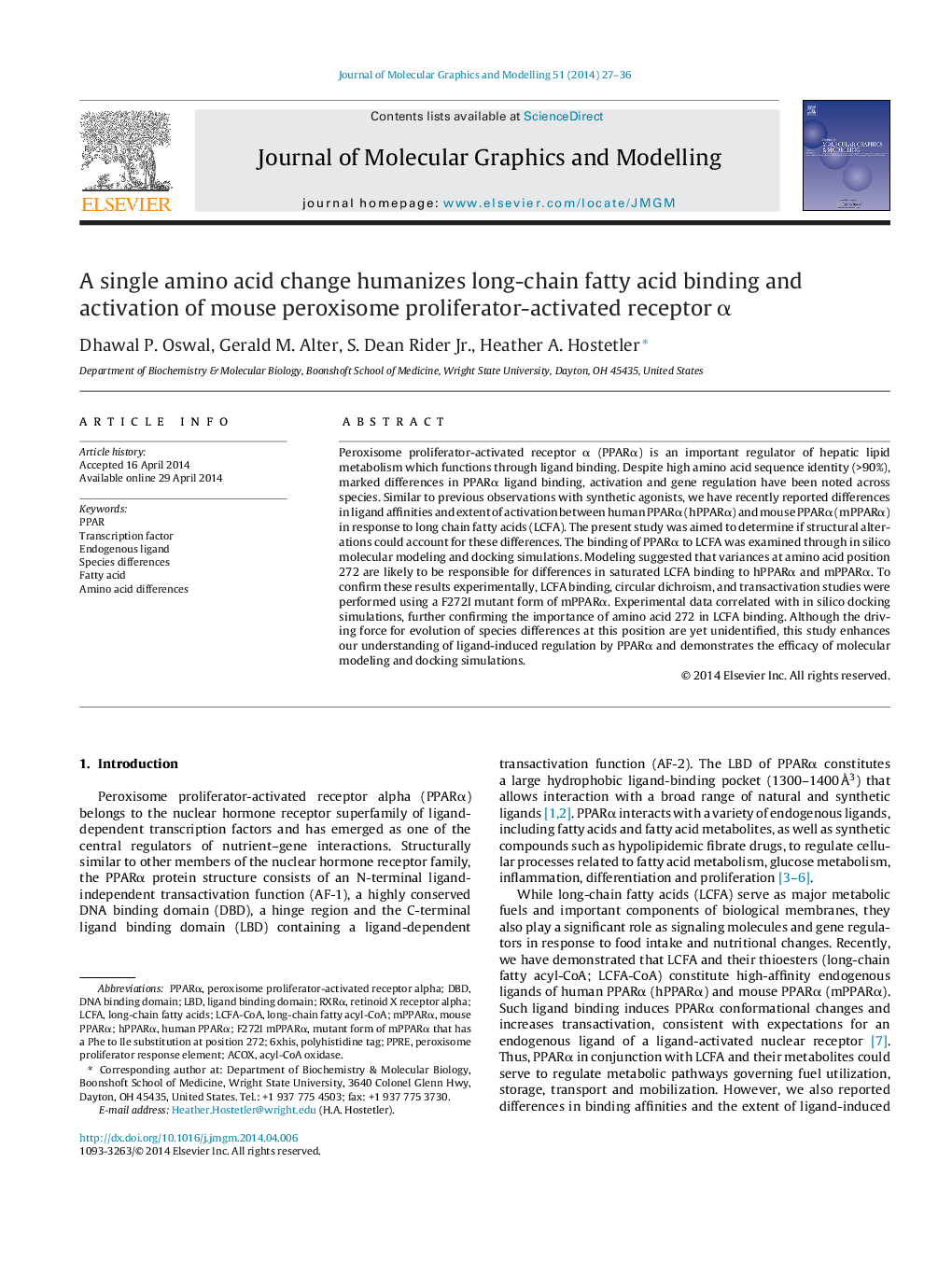| کد مقاله | کد نشریه | سال انتشار | مقاله انگلیسی | نسخه تمام متن |
|---|---|---|---|---|
| 444245 | 692951 | 2014 | 10 صفحه PDF | دانلود رایگان |

• Mechanisms underlying divergence in endogenous ligand binding affinities of human and mouse PPARα were examined.
• The size and shape of the PPARα ligand binding pocket differ between mouse and human.
• A phenylalanine at 272 in mouse PPARα causes stearic hindrance and inhibits binding of saturated fatty acids.
• A F272I amino acid substitution in mPPARα recapitulates the hPPARα saturated fatty acid binding and activation capabilities.
Peroxisome proliferator-activated receptor α (PPARα) is an important regulator of hepatic lipid metabolism which functions through ligand binding. Despite high amino acid sequence identity (>90%), marked differences in PPARα ligand binding, activation and gene regulation have been noted across species. Similar to previous observations with synthetic agonists, we have recently reported differences in ligand affinities and extent of activation between human PPARα (hPPARα) and mouse PPARα (mPPARα) in response to long chain fatty acids (LCFA). The present study was aimed to determine if structural alterations could account for these differences. The binding of PPARα to LCFA was examined through in silico molecular modeling and docking simulations. Modeling suggested that variances at amino acid position 272 are likely to be responsible for differences in saturated LCFA binding to hPPARα and mPPARα. To confirm these results experimentally, LCFA binding, circular dichroism, and transactivation studies were performed using a F272I mutant form of mPPARα. Experimental data correlated with in silico docking simulations, further confirming the importance of amino acid 272 in LCFA binding. Although the driving force for evolution of species differences at this position are yet unidentified, this study enhances our understanding of ligand-induced regulation by PPARα and demonstrates the efficacy of molecular modeling and docking simulations.
Figure optionsDownload high-quality image (160 K)Download as PowerPoint slide
Journal: Journal of Molecular Graphics and Modelling - Volume 51, June 2014, Pages 27–36